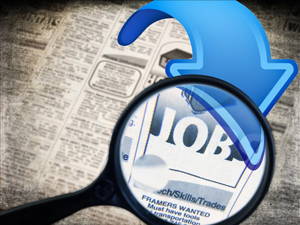CHARLENEM

(FinalCall.com) – For the fourth year in a row, a recession marred by joblessness and foreclosures resulted in a very bleak economic outlook for Blacks in the year 2011, say some economists.
While Blacks have always suffered unemployment disproportionately to other ethnicities, the big news was those rates broke through very devastating Depression-era numbers for Blacks.
The unemployment rate among Blacks was 16 percent compared to 10.8 percent nationally and among Black men in certain categories it was up to 22 percent, all of it very devastating, according to Dr. William Boone, political science professor at Clark Atlanta University.
“What that translates into is an even crisis as it relates to homeownership. We’re talking about the diminishing of any kind of wealth in the Black community at all,” especially due to high foreclosure rates for Blacks and Latinos, Dr. Boone told The Final Call.
Between the foreclosures and downturn in the market, Blacks lost what little they owned.
Per 10,000 loans among recent borrowers, eight percent of Blacks and Latinos lost their homes to foreclosures compared to 4.5 percent of Whites, according to research of 2007-2009 U.S. foreclosure rates by the Center for Responsible Lending, which works to eliminate abusive lending and financial practices.
The middle class, Blacks, and poor folks in general, will experience more hardships if the same chaos and tensions around economics exists in Washington, D.C., in 2012, Dr. Boone said.
“The poor are going to get poorer and I’m not saying that facetiously or as a usual kind of phrase, because the economy is not going to turn around fast and they’re not going to create a lot of new jobs for people who have low skills, so they’re going to get poor unless there’s a dramatic change in policies, one that’s directed at developing job development and skill development from the very top that is filtered down to these states and cities,” said Dr. Boone.
“I saw Black people lose ground in jobs and housing and in wealth. I also saw right-wing politicians open warfare on those programs and initiatives that could help people pull out of this,” said Marc Morial, president of the National Urban League.
The Urban League devoted a lot of time in 2011 to a jobs plan that would help stem the tide on unemployment and housing losses and President Barack Obama embraced full provisions. However, right-wing politicians blocked his plan, Mr. Morial argued.
With a spending power at almost a trillion dollars, there is a lot more the Black community can do for itself, he said.
“We have to encourage, pressure, push, advocate for a comprehensive jobs plan, another stimulus plan to help stimulate the economy but we’ve also got to be a lot more intentional about building businesses in our community,” Mr. Morial told The Final Call.
The trillion dollar buying power includes money that Blacks spend in cash, their debts, mortgages and college loans, but it also comes from companies working to seduce people into buying their products, whether good or bad for the community, according to Dedrick Muhammad, NAACP senior director of the Economic Department and executive director of the Financial Freedom Center.
The sub-prime mortgage scheme of 2006 is one example. “African Americans have been looking for means to economically empower ourselves and we tried to take advantage of the opportunity to buy homes … but others were taking advantage of us by putting us in unsustainable and higher costs loans,” he said.
In 2011, he continued, people employed in private sector jobs felt more secure in retaining them since the beginning of the recession but for Blacks, increases in government cutbacks and the erosion of government sector jobs have posed a serious threat to its middle class.
The fact that those jobs are declining, combined with increases in unemployment and a decrease in the Black employment pool makes 2011 another bad year in what he calls the great recession, Mr. Muhammad said.
Although economists might argue the recession ended in 2009 because the Gross Domestic Product stopped decreasing, Mr. Muhammad said he views the recession more at how it affects people and in that way 2011 was another year of recession.
“We need to keep educating ourselves on the importance of wealth, of wealth building and the long term strategy and sacrifices it takes,” Mr. Muhammad said.
“We need to think about what it means to be at this high level of economic distress for so long,” said Dr. Algernon Austin, director of the Program on Race, Ethnicity and the Economy for the Economic Policy Institute.
In addition to loss of wealth due to high joblessness and foreclosure rates, Blacks have pursued higher education, only to end up with massive student loan debts and little useful education, he added.
“Sadly, the coming year promises more of the same for African Americans: A failure of our political leaders and high levels of economic distress. We have to hope that after the election, politicians will begin to act responsibly. Regardless, it is time for the people to lead and have the leaders follow,” Dr. Austin said.
Dr. Anthony Asadullah Samad, political science professor at East Los Angeles College said 2011 witnessed a shift with the Occupy Movement examining the wealth and income disparities that marked the 20th Century.
People have always been able to deflect the class conversation because race always trumped class, but in 2011 with the Occupy Movement, everybody else has been proportionately disenfranchised in the way Blacks used to be.
“I still think we’re more adversely impacted by employment because the right to work and protective work has always been a privilege of Whiteness. However, with the disappearance of work, White people and others were just as impacted as Black people,” Dr. Samad said.
Blacks still face discrimination in terms of access to capital and homes and one solution for 2012 is for them to engage the Occupy Movement, he added.












